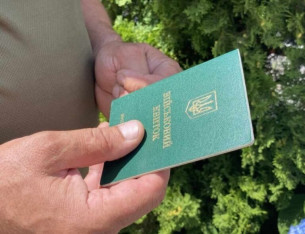In the context of military mobilization or conscription, the issue of deferment from military service is critically important for many citizens of Ukraine. In 2025, Ukrainian legislation regulates the grounds for obtaining deferment from military service based on various circumstances.
What is a deferment from conscription?
A deferment from mobilization is a temporary exemption from fulfilling military obligations. It may be granted based on health conditions, family circumstances, educational commitments, professional activities, or other legally defined grounds.
Main Types of Deferments
Health-Based Deferments. Health-related issues are one of the most common reasons for deferment. In such cases, an individual is temporarily deemed unfit for service by the Military Medical Commission (MMC).
- Chronic illnesses: Conditions such as severe heart, respiratory, or nervous system diseases, as well as other serious health issues, may qualify for a deferment.
- Mental health conditions: Identified psychological disorders can lead to temporary or permanent exemption from service.
- Injuries and rehabilitation: Individuals undergoing prolonged treatment or recovering from injuries may also be eligible.
Family Circumstances. The law provides deferments for those with specific family-related responsibilities:
- Care for dependents: Individuals who are the sole caregivers for incapacitated parents, spouses, children, or other close relatives may qualify.
- Parenthood: Parents of three or more children, or those with a child with a disability, are entitled to a deferment from conscription.
- Pregnant spouse: If a conscript's wife is confirmed to be pregnant, this may serve as grounds for exemption.
Education-Based Deferments. Students enrolled in full-time programs at Ukrainian or foreign educational institutions are eligible for deferment throughout their studies. This applies to undergraduate, graduate, and postgraduate levels.
Critical Industry Workers. Professionals employed in key sectors vital to national interests (e.g., energy, healthcare, defense industries) may also receive deferments.
Deferments from conscription are an important mechanism that allows for the consideration of citizens' personal circumstances and the protection of their rights. They help maintain social justice and adapt military obligations to specific life situations. At the same time, each case of deferment is thoroughly reviewed by authorized bodies to prevent abuse.
How to issue a deferment
- Prepare Documentation. A set of documents must be provided to support the claim for deferment: medical certificate (for health-based deferments), proof of family circumstances, such as family composition records or documents confirming caregiving responsibilities, enrollment confirmation (for education deferments), employment verification (for critical industry workers).
- Submit an Application. The individual must file a formal request with their local military commissariat along with the necessary documents. The commissariat may conduct additional checks or refer the applicant to a medical commission.
- Await the Decision. Following the review of documents and any required investigations, the military commissioner issues a decision on granting or denying the deferment. In case of refusal, the decision can be appealed in court.
The Role of Legal Support
Applying for a deferment can be complicated by:
- Incomplete documentation.
- Denials from the commissariat.
- Misconduct by the commission.
How a lawyer or advocate can help:
- Provide consultation on grounds for deferment and required documents.
- Assist in gathering evidence to support the application.
- Challenge a denial in court.
- Guide clients through the Military Medical Commission process.
Legal assistance significantly improves the chances of successfully obtaining a deferment. A lawyer ensures proper legal protection, prevents procedural errors, and resolves disputes effectively. With professional support, individuals can avoid documentation mistakes and efficiently address contentious issues.
Question
How to arrange a deferment due to health ?
Answer
You need to undergo a medical examination by the Military Medical Commission (MMC), obtain a certificate confirming unfitness for service or the need for treatment, and then submit these documents to the military enlistment office.
Question
Is it possible to get a deferral due to education?
Answer
Yes, students enrolled in full-time programs at higher educational institutions can receive a deferral for the duration of their studies. To do this, you need to provide a certificate from the educational institution.
List of required documents. To arrange a deferral, you will need: medical certificates, caregiver documents for relatives, proof of education or employment.
List of required documents. To arrange a deferral, you will need: medical certificates, caregiver documents for relatives, proof of education or employment.
Processing time. From a few days to several weeks, depending on the speed of document collection and case review.
Obtaining a draft deferral in 2025 is possible based on legally defined circumstances, the most common of which include health conditions, family responsibilities, education, or professional activities. The key is to collect the necessary documents in time, contact the military enlistment office, and, if necessary, seek help from a lawyer who can protect your rights.



































